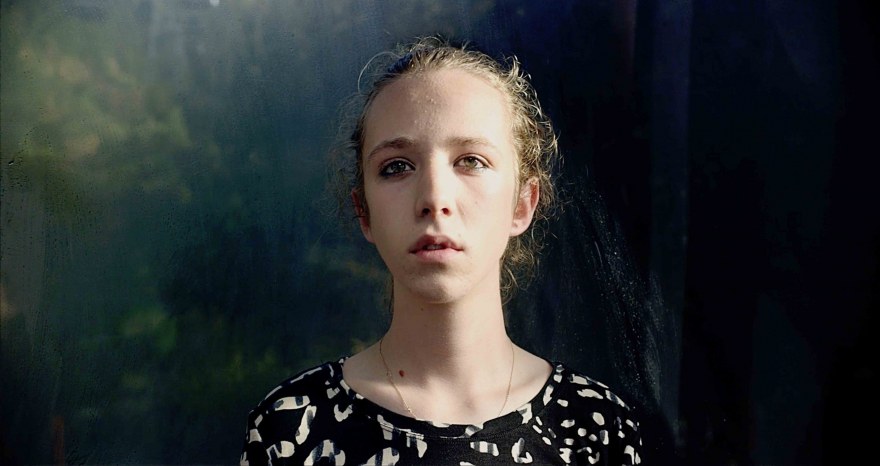Night cap with Aline
Interview with Simon Guélat, director of Aline
Why did you want the main subject of the film to be a hidden love affair?
As in my first film, what interests me is how a character frees himself (or not) from the environment from which he came, his ability to invent something else, something unexpected. In Aline, the forbidden adds tension, it makes the relationship more romantic. Love has to occur at night, in the woods, under the moon. For Alban, the main character of the film, it may not be so much daring the forbidden as escaping from his mother’s gaze. But to tell the truth, for me, the main subject of the film is still elsewhere. Rather, it is how literature (or art in general) can help us sustain life, open doors and broaden our vision.
Are you particularly interested in the topic of secret relationships and are you planning to make other films on this issue?
I am preparing a short film that does not deal directly with this issue. But I am always interested in anything of an underground nature.
What did you find interesting about Aline’s male-female ambiguity?
This film is inspired by a novel by Charles-Ferdinand Ramuz published in 1905. Alban reads this novel in the film and identifies with the young heroine, Aline, who lives a budding love with a village peasant, Julien. Aline’s trajectory then merges with that of the young teenager in my film. I wanted to embody this in the image, so that it was not just an idea, so we can see in Alban the face of Aline. The impossibility for Aline to live a relationship in the open with Julien (because they are not of the same background) is still alive for Alban today, for other reasons. Morality prevails elsewhere. I wanted it to be more femininity than homosexuality in Alban. I have the impression that the discovery of homosexuality for a young teenager has been addressed a lot in cinema. Now I wanted a free, crazy character who’s willing to step outside the box.
Why do we never see Julien’s father in the film?
Because it also does not exist in Ramuz’s novel, and that it strengthens the stifling relationship between mother and son. The mother said to him at one point: “You know, love is something that passes quickly”. One can imagine that his past in love is complicated. To this comment, Alban responds with a withering stare. Regardless of his mother’s advice and prohibitions, he will live this love.
Why did you want to experiment with creating a parallel between what Alban is projecting in his relationship and a novel he’s reading?
That is what I explained earlier, it gives more scope to what he is experiencing. I also liked that it might instill doubt in us: is he fantasizing this story or is he really living it?
Would you say that the short film format has given you any particular freedom?
The short format was just for this story. I don’t have experience with feature-length films, but I don’t think the moment of shooting is really all that different. You have to fight with yourself first to stay as free as possible.
What are your reference works?
When I was writing the film, I had Portuguese films in mind, like John From by João Nicolau, where a young teenager, alone one summer in her suburban apartment tower, invents a love story with the neighbor. For the literary side of the film, I had Truffaut or Desplechin in the back of my head. I also saw Claude Goretta’s adaptation of Charles-Ferdinand Ramuz’s Jean-Luc persécuté. In the image, I wanted to leave reality behind, to be completely with the protagonist, in his subjectivity, his fantasies. I looked for a certain lyricism, occasionally supported by camera movements or the use of zoom. The idea was to take on a melodramatic side, as in Cleo from 5 to 7 (Varda) or Before the Revolution (Bertolucci).








